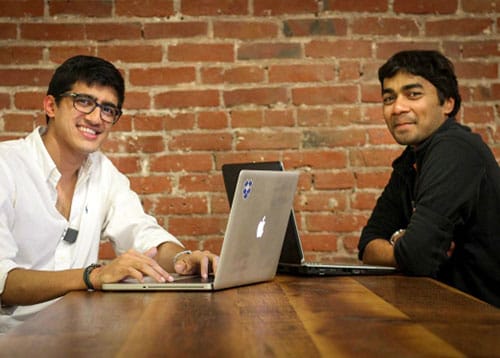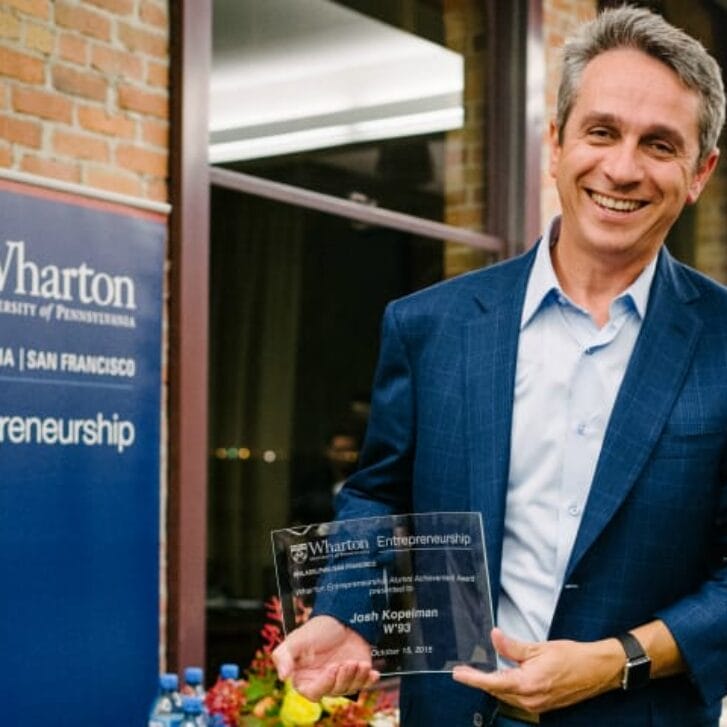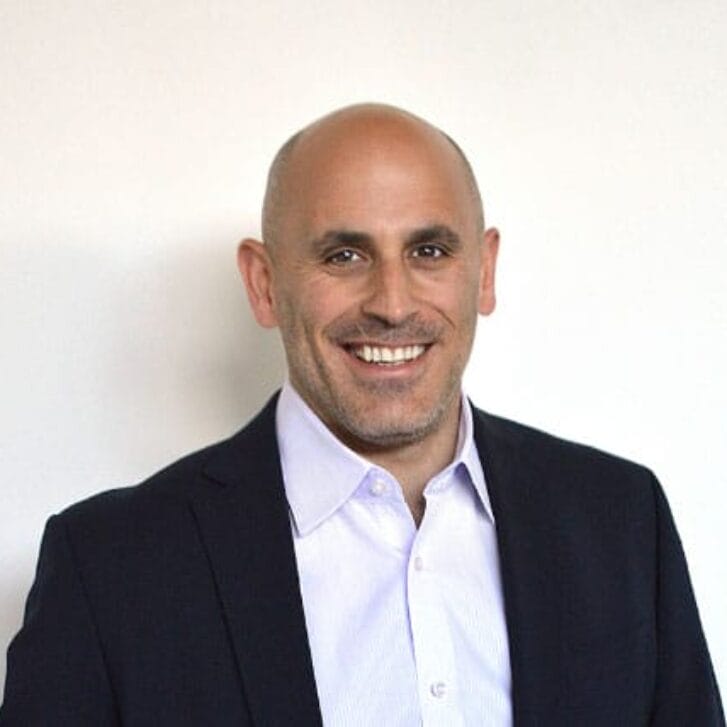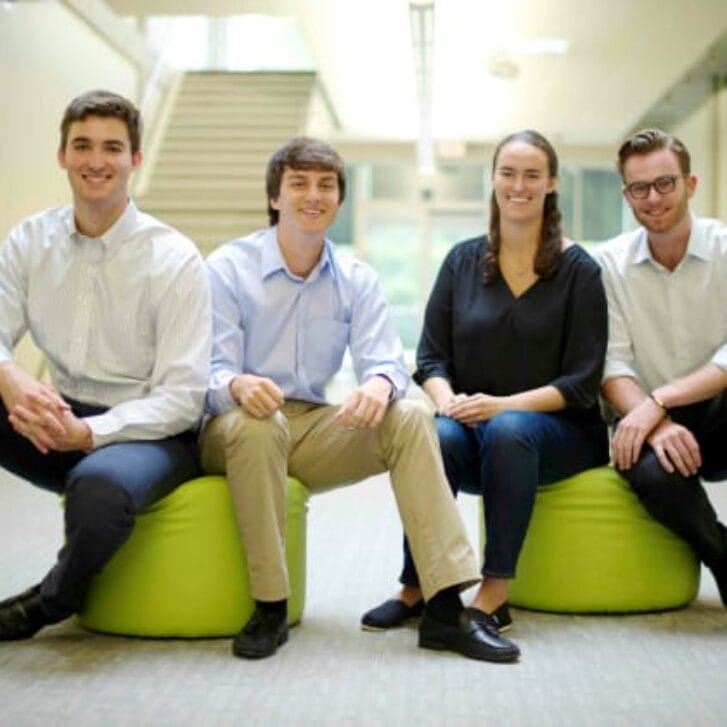Yash Kothari W15 and Pranshu Maheshwari C15 W15 started their company, Prayas Analytics, out of their dorm room as undergrads at Penn. Their software gives brick-and-mortar businesses the ability to test their stores, the way e-commerce companies test their websites. Flash-forward to today and Prayas is now a part of this summer’s cohort at Y Combinator, the premier accelerator based in Mountain View, California.
Wharton Entrepreneurship caught up with Kothari and Maheshwari to talk more about their recent move to the West Coast, their influences and what’s next for their company.
Q: First, tell us a little about Prayas Analytics and how it works.
YASH KOTHARI: Prayas is the Google Analytics for physical retail stores. We take the concept of A/B testing, popularized by Amazon, and bring it to the offline world.
Our first product, which is focused on the checkout, helps retailers lower customer abandonment, optimize staffing and improve the customer experience. This is done by collecting metrics such as associate engagement, customer waiting times and in-queue abandonment. The best part is that there is no custom hardware installation required. These metrics are collected by leveraging existing security cameras in a retailer’s stores, meaning that they can get going straight away with no additional costs.
The second product is focused on fixture engagement. What are customers looking at, for how long and do they convert? Accordingly, we can suggest tests to improve merchandising, visual design and in-store advertising.
Q: During your time as undergrads, which professor influenced you the most?
KOTHARI: Professor Kartik Hosanagar has been a huge influence on Prayas over the past few years. I had the chance to take his class Enabling Technologies a couple of semesters ago, and through that I first met Kartik. He has an extraordinary resume, having founded Yodle and invested in other successful startups such as Milo, RJMetrics and Monetate. His advice has been invaluable so far, and we hope to maintain the relationship for many years to come.
PRANSHU MAHESHWARI: One of the professors who greatly influenced me was Wharton’s Frances and Pei-Yuan Chia Professor Peter Fader, and in particular his approach to data. I took his class, STAT476, a year ago. One of his quotes—“Think about the story”—has influenced how I look at numbers. It isn’t enough to just analyze data; one has to qualitatively look at whether the data make sense. If the data don’t make sense, then we’re probably missing the bigger story behind it.
Q: How many people are on your team, and where are you in the development of the company right now?

Prayas Analytics co-founders Yash Kothari (left) and Pranshu Maheshwari
KOTHARI: Pranshu and I are currently the only two full-time employees, but we have been working with [Penn students] Ashu Goel, Moses Soh, Mac Cordrey, Prayay Sharma, and Josh Lee over the past year.
We’re at an exciting time for the company. We were recently accepted into Y Combinator in San Francisco, and are growing quickly. We’re working with a Fortune 200 retailer and are focused on finding additional retailers to work with as we continue to scale our sales efforts. In the next few months, we are hoping to raise a round of funding and hire a few key employees to further accelerate our growth.
Q: What are some of the most memorable moments—in or out of the classroom—from your time at Wharton?
MAHESHWARI: One memorable moment for us was a Wharton Leadership Venture to Utah over spring break of 2013. That’s where Yash and I met and had the idea that eventually led to Prayas.
Q: Having spent time at Wharton and now living in the Bay Area, what major differences do you see between the East Coast and West Coast entrepreneurial communities?
KOTHARI: Well, we’ve only spent a couple of months in the Bay Area so far! That said, I think the big difference in the community is how people think about startups, growth and opportunities. On the East Coast and specifically at Wharton, there is a really strong focus on financial fundamentals and analytics. On the West Coast, I think the focus is really on the vision. It’s OK if there isn’t profit at the beginning—as long as there’s user growth and a big picture vision.
Q: Last summer, you received $20,000 in funding and mentorship from First Round Capital’s Dorm Room Fund [founded by Josh Kopelman W93]. Tell us about that experience and what you learned.
KOTHARI: Being a part of the Dorm Room Fund (DRF) portfolio has been a great boost so far. Of course, the money itself was useful in that it allowed us to get through the summer of 2014, hire an intern, develop out our initial product and fund our initial pilots.
However, more important than the money has been the post-investment support from Dorm Room Fund. One of the fun perks was being able to work out of First Round Capital’s headquarters, which are located right on campus at 4040 Locust Street. It’s pretty awesome to be able to say “hi” to and catch up with people like Josh. Furthermore, especially in a relationship-driven industry such as retail, DRF has been able to look into connections that may help us develop out our business, and that has been a big boost. As we look to raise our next round of funding, we hope to use DRF’s investment network to help put us in touch with even more potential investors.
Editor’s note: For more about Dorm Room Fund and other Wharton students and startups involved with it, read “Small Dorm Rooms, Big Startup Funds.”
Q: Did your time at Wharton help you develop the ideas behind Prayas?
KOTHARI: Wharton Entrepreneurship and its initiatives, including the Venture Initiation Program and Entrepreneur in Residence program have been extremely helpful in kick-starting our company. Yet, it’s perhaps the intangibles that have been most helpful over the past couple of years. The network of peers, professors and alumni who are interested in tech and entrepreneurship has been mind-blowing, and we are so grateful for that.
Q: Finally, what’s one piece of advice you would give to other young entrepreneurs today?
MAHESHWARI: A big piece of advice, especially for college entrepreneurs, is to realize that the only risk at this time of their lives is opportunity cost. With the exception of student debt, most of us don’t have obligations, like family, at this stage of our lives, and so it’s a great time to take on the risk of starting a company. It only gets harder to take the leap from here.
Learn more about Prayas Analytics and Yash Kothari through the slideshow below.
Editor’s note: The original version of this article appeared on the Wharton Entrepreneurship Blog on Aug. 14, 2015.


























